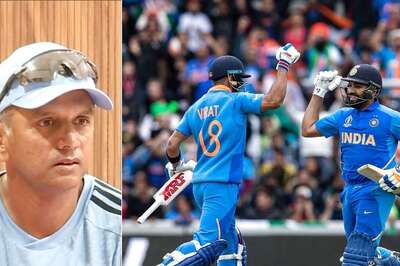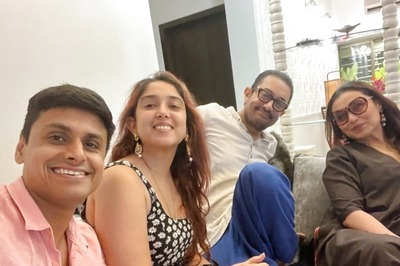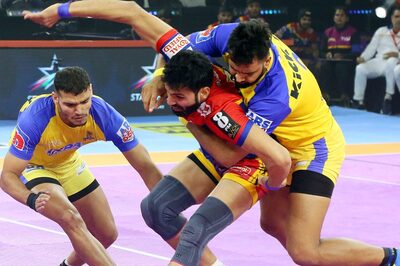
views
Kathmandu: Nepal’s lawmakers picked the country's first president on Monday, rejecting a candidate backed by former Maoist rebels in a move that could plunge the Himalayan nation's nascent republic into more political turmoil.
Ram Baran Yadav, an ethnic Madheshi from the centrist Nepali Congress party, won 308 out of the 590 votes cast by the constituent assembly, defeating Ramraja Prasad Singh who had the support of the Maoists, officials said.
It was the first major vote in a special assembly since lawmakers decided to abolish the 239-year-old monarchy and declare a republic, part of a peace process that ended a decade-long civil war with Maoist insurgents.
In some ways, the new president may also help stabilise Nepal. An ethnic Madheshi from the country's lowlands, Yadav's election may help unite a country torn for decades between its highland Himalayan cultures and the peoples of the plains.
But the snubbing of the Maoist candidate for the largely ceremonial position of president has created other problems. There are now doubts that the Maoists, who are the biggest party in the assembly, will form a government with their chief, Prachanda, as prime minister.
"It is a result of an unholy alliance," Matrika Yadav, a senior Maoist leader, told reporters. "We'll not form the government ... we'll play the role of a strong opposition and help prepare the constitution."
The assembly, elected in April, is meant to both govern the country and draw up a new constitution. Maoist spokesman Krishna Bahadur Mahara said no decision had yet been taken about the party's next move. Analysts said there was a split within the Maoists over whether to form a government.
"The Maoists thought they had a mandate to have both the presidency and the premiership," said Kunda Dixit, editor of the Nepali Times. "The other parties thought that was concentrating too much power with the Maoists.
"I expect within a week or so the Maoists will start to form a government. They will be under heavy pressure from both the voters and the international community to do so." The political turmoil comes amid fuel and food price rises in one of the world's poorest countries.
The United Nations says more than 6 million Nepalis either need immediate food aid or are at risk of food insecurity because of rising prices. Madheshi groups have been demanding regional autonomy.
At least 50 people were killed in the Madheshi protests in the plains since the peace deal with the Maoists. The Maoists had backed 73-year-old Singh, another Madheshi who masterminded a series of bomb blasts in Nepal, including attacks on the parliament and the royal palace in 1985.
On hearing the result of the vote, about 100 activists danced outside the assembly hall, many waving banners and shouting "Long live the republic of Nepal" and "Long live the first president". Yadav, 61, was supported by the Communist UML party and the Madheshi People's Rights Forum, the third and the fourth biggest parties, as well as other smaller parties.




















Comments
0 comment